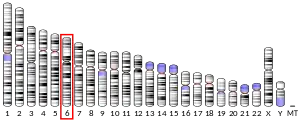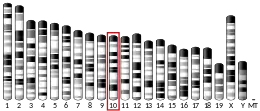| PEX3 | |||||||||||||||||||||||||||||||||||||||||||||||||||
|---|---|---|---|---|---|---|---|---|---|---|---|---|---|---|---|---|---|---|---|---|---|---|---|---|---|---|---|---|---|---|---|---|---|---|---|---|---|---|---|---|---|---|---|---|---|---|---|---|---|---|---|
| |||||||||||||||||||||||||||||||||||||||||||||||||||
| Identifiers | |||||||||||||||||||||||||||||||||||||||||||||||||||
| Aliases | PEX3, PBD10A, TRG18, peroxisomal biogenesis factor 3, PBD10B | ||||||||||||||||||||||||||||||||||||||||||||||||||
| External IDs | OMIM: 603164 MGI: 1929646 HomoloGene: 2691 GeneCards: PEX3 | ||||||||||||||||||||||||||||||||||||||||||||||||||
| |||||||||||||||||||||||||||||||||||||||||||||||||||
| |||||||||||||||||||||||||||||||||||||||||||||||||||
| |||||||||||||||||||||||||||||||||||||||||||||||||||
| |||||||||||||||||||||||||||||||||||||||||||||||||||
| |||||||||||||||||||||||||||||||||||||||||||||||||||
| Wikidata | |||||||||||||||||||||||||||||||||||||||||||||||||||
| |||||||||||||||||||||||||||||||||||||||||||||||||||
Peroxisomal biogenesis factor 3 is a protein that in humans is encoded by the PEX3 gene.[5][6]
Interactions
References
- 1 2 3 GRCh38: Ensembl release 89: ENSG00000034693 - Ensembl, May 2017
- 1 2 3 GRCm38: Ensembl release 89: ENSMUSG00000019809 - Ensembl, May 2017
- ↑ "Human PubMed Reference:". National Center for Biotechnology Information, U.S. National Library of Medicine.
- ↑ "Mouse PubMed Reference:". National Center for Biotechnology Information, U.S. National Library of Medicine.
- ↑ Kammerer S, Holzinger A, Welsch U, Roscher AA (Jun 1998). "Cloning and characterization of the gene encoding the human peroxisomal assembly protein Pex3p". FEBS Letters. 429 (1): 53–60. doi:10.1016/S0014-5793(98)00557-2. PMID 9657383. S2CID 33291739.
- ↑ "Entrez Gene: PEX3 peroxisomal biogenesis factor 3".
- ↑ Rual JF, Venkatesan K, Hao T, Hirozane-Kishikawa T, Dricot A, Li N, Berriz GF, Gibbons FD, Dreze M, Ayivi-Guedehoussou N, Klitgord N, Simon C, Boxem M, Milstein S, Rosenberg J, Goldberg DS, Zhang LV, Wong SL, Franklin G, Li S, Albala JS, Lim J, Fraughton C, Llamosas E, Cevik S, Bex C, Lamesch P, Sikorski RS, Vandenhaute J, Zoghbi HY, Smolyar A, Bosak S, Sequerra R, Doucette-Stamm L, Cusick ME, Hill DE, Roth FP, Vidal M (Oct 2005). "Towards a proteome-scale map of the human protein-protein interaction network". Nature. 437 (7062): 1173–8. Bibcode:2005Natur.437.1173R. doi:10.1038/nature04209. PMID 16189514. S2CID 4427026.
- ↑ Mayerhofer PU, Kattenfeld T, Roscher AA, Muntau AC (Mar 2002). "Two splice variants of human PEX19 exhibit distinct functions in peroxisomal assembly". Biochemical and Biophysical Research Communications. 291 (5): 1180–6. doi:10.1006/bbrc.2002.6568. PMID 11883941.
- ↑ Sacksteder KA, Jones JM, South ST, Li X, Liu Y, Gould SJ (Mar 2000). "PEX19 binds multiple peroxisomal membrane proteins, is predominantly cytoplasmic, and is required for peroxisome membrane synthesis". The Journal of Cell Biology. 148 (5): 931–44. doi:10.1083/jcb.148.5.931. PMC 2174547. PMID 10704444.
- ↑ Fransen M, Wylin T, Brees C, Mannaerts GP, Van Veldhoven PP (Jul 2001). "Human pex19p binds peroxisomal integral membrane proteins at regions distinct from their sorting sequences". Molecular and Cellular Biology. 21 (13): 4413–24. doi:10.1128/MCB.21.13.4413-4424.2001. PMC 87101. PMID 11390669.
Further reading
- South ST, Gould SJ (Jan 1999). "Peroxisome synthesis in the absence of preexisting peroxisomes". The Journal of Cell Biology. 144 (2): 255–66. doi:10.1083/jcb.144.2.255. PMC 2132891. PMID 9922452.
- Soukupova M, Sprenger C, Gorgas K, Kunau WH, Dodt G (Jun 1999). "Identification and characterization of the human peroxin PEX3". European Journal of Cell Biology. 78 (6): 357–74. doi:10.1016/S0171-9335(99)80078-8. PMID 10430017.
- Muntau AC, Holzinger A, Mayerhofer PU, Gärtner J, Roscher AA, Kammerer S (Feb 2000). "The human PEX3 gene encoding a peroxisomal assembly protein: genomic organization, positional mapping, and mutation analysis in candidate phenotypes". Biochemical and Biophysical Research Communications. 268 (3): 704–10. doi:10.1006/bbrc.2000.2193. PMID 10679269.
- Sacksteder KA, Jones JM, South ST, Li X, Liu Y, Gould SJ (Mar 2000). "PEX19 binds multiple peroxisomal membrane proteins, is predominantly cytoplasmic, and is required for peroxisome membrane synthesis". The Journal of Cell Biology. 148 (5): 931–44. doi:10.1083/jcb.148.5.931. PMC 2174547. PMID 10704444.
- Ghaedi K, Tamura S, Okumoto K, Matsuzono Y, Fujiki Y (Jun 2000). "The peroxin pex3p initiates membrane assembly in peroxisome biogenesis". Molecular Biology of the Cell. 11 (6): 2085–102. doi:10.1091/mbc.11.6.2085. PMC 14905. PMID 10848631.
- Muntau AC, Mayerhofer PU, Paton BC, Kammerer S, Roscher AA (Oct 2000). "Defective peroxisome membrane synthesis due to mutations in human PEX3 causes Zellweger syndrome, complementation group G". American Journal of Human Genetics. 67 (4): 967–75. doi:10.1086/303071. PMC 1287898. PMID 10958759.
- Ghaedi K, Honsho M, Shimozawa N, Suzuki Y, Kondo N, Fujiki Y (Oct 2000). "PEX3 is the causal gene responsible for peroxisome membrane assembly-defective Zellweger syndrome of complementation group G". American Journal of Human Genetics. 67 (4): 976–81. doi:10.1086/303086. PMC 1287899. PMID 10968777.
- Fransen M, Wylin T, Brees C, Mannaerts GP, Van Veldhoven PP (Jul 2001). "Human pex19p binds peroxisomal integral membrane proteins at regions distinct from their sorting sequences". Molecular and Cellular Biology. 21 (13): 4413–24. doi:10.1128/MCB.21.13.4413-4424.2001. PMC 87101. PMID 11390669.
- Mayerhofer PU, Kattenfeld T, Roscher AA, Muntau AC (Mar 2002). "Two splice variants of human PEX19 exhibit distinct functions in peroxisomal assembly". Biochemical and Biophysical Research Communications. 291 (5): 1180–6. doi:10.1006/bbrc.2002.6568. PMID 11883941.
- Fransen M, Brees C, Ghys K, Amery L, Mannaerts GP, Ladant D, Van Veldhoven PP (Mar 2002). "Analysis of mammalian peroxin interactions using a non-transcription-based bacterial two-hybrid assay". Molecular & Cellular Proteomics. 1 (3): 243–52. doi:10.1074/mcp.M100025-MCP200. PMID 12096124.
- Muntau AC, Roscher AA, Kunau WH, Dodt G (Jul 2003). "The interaction between human PEX3 and PEX19 characterized by fluorescence resonance energy transfer (FRET) analysis". European Journal of Cell Biology. 82 (7): 333–42. doi:10.1078/0171-9335-00325. PMID 12924628.
- Muntau AC, Roscher AA, Kunau WH, Dodt G (2003). "Interaction of PEX3 and PEX19 Visualized by Fluorescence Resonance Energy Transfer (FRET)". Peroxisomal Disorders and Regulation of Genes. Advances in Experimental Medicine and Biology. Vol. 544. pp. 221–4. doi:10.1007/978-1-4419-9072-3_27. ISBN 978-1-4613-4782-8. PMID 14713233.
- Fang Y, Morrell JC, Jones JM, Gould SJ (Mar 2004). "PEX3 functions as a PEX19 docking factor in the import of class I peroxisomal membrane proteins". The Journal of Cell Biology. 164 (6): 863–75. doi:10.1083/jcb.200311131. PMC 2172291. PMID 15007061.
- Rual JF, Venkatesan K, Hao T, Hirozane-Kishikawa T, Dricot A, Li N, Berriz GF, Gibbons FD, Dreze M, Ayivi-Guedehoussou N, Klitgord N, Simon C, Boxem M, Milstein S, Rosenberg J, Goldberg DS, Zhang LV, Wong SL, Franklin G, Li S, Albala JS, Lim J, Fraughton C, Llamosas E, Cevik S, Bex C, Lamesch P, Sikorski RS, Vandenhaute J, Zoghbi HY, Smolyar A, Bosak S, Sequerra R, Doucette-Stamm L, Cusick ME, Hill DE, Roth FP, Vidal M (Oct 2005). "Towards a proteome-scale map of the human protein-protein interaction network". Nature. 437 (7062): 1173–8. Bibcode:2005Natur.437.1173R. doi:10.1038/nature04209. PMID 16189514. S2CID 4427026.
- Matsuzono Y, Matsuzaki T, Fujiki Y (Sep 2006). "Functional domain mapping of peroxin Pex19p: interaction with Pex3p is essential for function and translocation". Journal of Cell Science. 119 (Pt 17): 3539–50. doi:10.1242/jcs.03100. PMID 16895967.
External links
- GeneReviews/NCBI/NIH/UW entry on Peroxisome Biogenesis Disorders, Zellweger Syndrome Spectrum
- OMIM entries on Peroxisome Biogenesis Disorders, Zellweger Syndrome Spectrum
This article is issued from Wikipedia. The text is licensed under Creative Commons - Attribution - Sharealike. Additional terms may apply for the media files.





